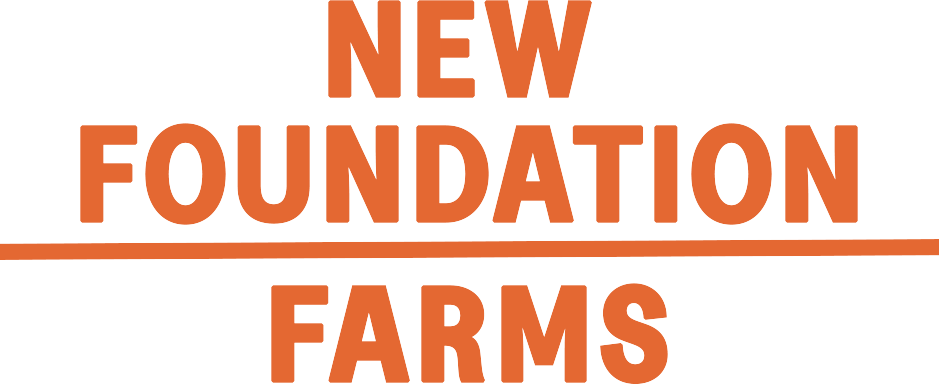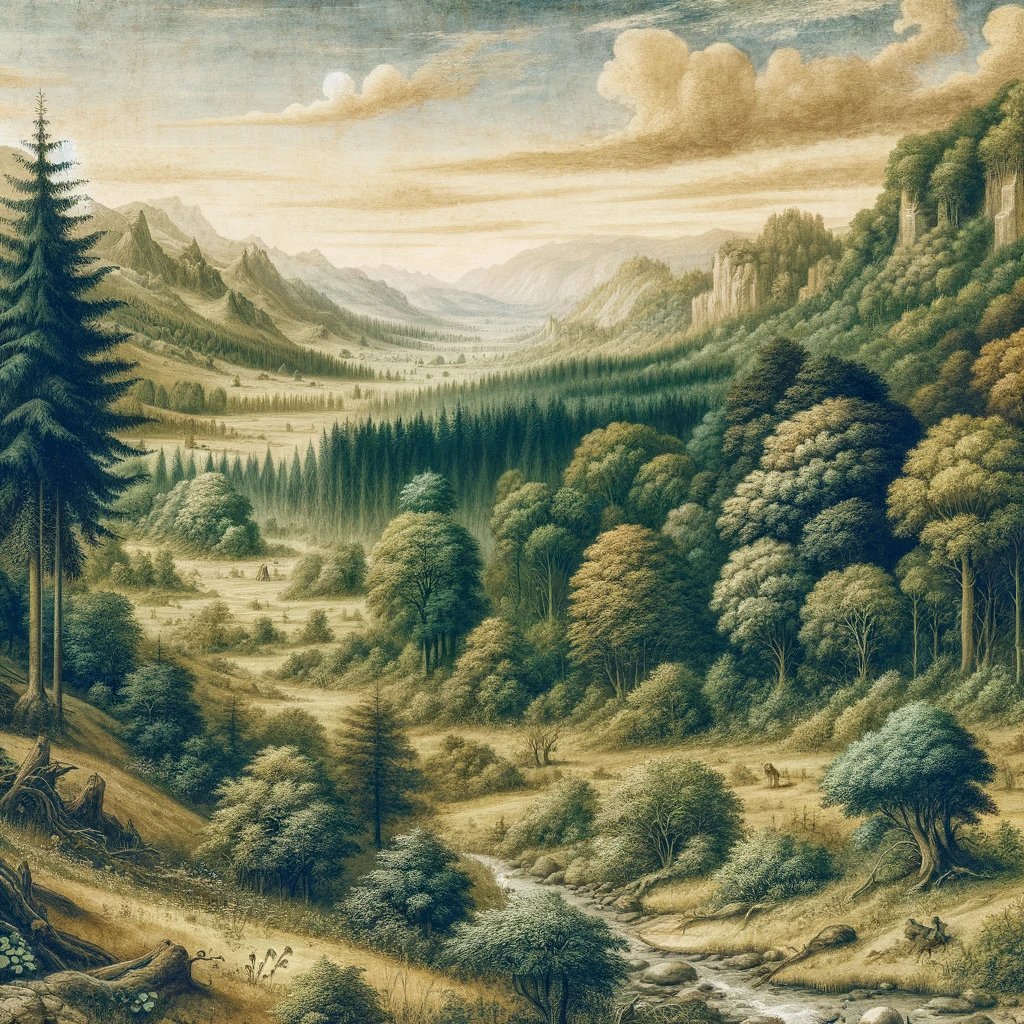What is nature?
The Oxford Dictionary describes nature as:
‘the phenomena of the physical world collectively, including plants, animals, the landscape, and other features and products of the earth, as opposed to humans or human creations’
The Cambridge Dictionary describes nature as:
‘all the plants, creatures, substances, and forces that exist in the universe, which are not made by people’
Nature , possibly as defined in the 13th Century
What’s missing here is us!
In traditional dictionary definitions, "nature" is described as the ensemble of the physical world, typically excluding human influences and artifacts. This characterisation draws a clear line separating humanity from the rest of the natural world, treating humans as external agents or observers rather than as integral participants within nature. Philosophically, this separation is not only artificial but also potentially detrimental, as it implies that human activity is somehow not a natural part of the world, which can influence our perceptions and interactions with the environment.
From a philosophical standpoint, considering humans as outside of nature can lead to a dualistic view, as discussed in previous articles (thank you Descartes!) where nature is seen as pure and pristine, only until touched by humans. This view can foster a mindset of domination and exploitation, where the natural world is merely a resource to be used rather than a living, interdependent system of which we are a part. It neglects the fact that human beings are biological entities, evolved from and intertwined with the natural world.
Expanding further on the implications, this artificial division might contribute to the environmental crises we face today. If humans view themselves as separate from nature, there is less incentive to maintain ecological balances that are crucial for the survival of all life forms. Conversely, a more integrated view, where humans acknowledge themselves as a part of nature, could foster greater environmental responsibility and sustainable practices. Recognising our role within the natural system can encourage a more ethical approach to how we interact with the environment, prompting actions that aim not just at short-term benefits for humanity, but at long-term health of the entire biosphere.
Thus, redefining our relationship with nature to include humanity not as separate from but as an integral component of the natural world can lead to a more holistic understanding of our place within the ecosystem. This philosophical shift is essential for developing more sustainable ways of living and for fostering a deeper respect for the natural systems that sustain all forms of life.
Etymology
People who confuse etymology and entomology bug me beyond words ! (sorry!)
The etymology of the word dates back to around the 13th Century and is described as:
The etymology of "nature," tracing back to the Latin word natura, which itself is derived from nasci, meaning "to be born," initially encompassed a broad, inclusive understanding of the world. This included the inherent qualities of all things that emerge and grow, thereby implicitly including human beings as a part of the natural order.
The shift towards a more exclusive definition of nature, which separates humanity from the natural world, can be largely attributed to developments during the Enlightenment era in the 17th and 18th centuries. This period marked significant advancements in scientific understanding and philosophical thinking, which began to distinctly categorise and differentiate between the human world and the rest of nature.
Philosophers like René Descartes and John Locke contributed to a view of humans as distinct from and superior to the natural world, emphasising rationality and conscious thought as uniquely human traits. Descartes, for instance, posited a dualism between mind and body, suggesting a fundamental difference between human cognition (mind) and the physical world (body/nature). This perspective reinforced the idea of humanity as separate from and often in control of nature.
Further, the Industrial Revolution, which began in the late 18th century, greatly expanded the scale and scope of human alteration of the environment. This period highlighted human ability to manipulate and change natural landscapes and processes, leading to an even greater conceptual separation. Nature came to be viewed more as a resource to be exploited rather than a living system that included humanity.
The rise of natural sciences also played a significant role. As scientific methods began to focus on categorising and studying the physical and biological processes in a manner that was as detached as possible from human influence, the idea of nature as an independent entity became more pronounced. This approach was practical for scientific study but furthered the philosophical and cultural notion of a divide between humans and the natural world.
In modern times, while the scientific understanding of humans as biological organisms firmly places us within the realm of nature, many philosophical, cultural, and practical attitudes continue to treat human society and the natural environment as largely separate entities. This ongoing separation in some aspects of thought and language reflects centuries of evolving understanding and remains a significant point of discussion in environmental philosophy and ethics.
Future concept of what nature means.
Wikipedia takes a very slightly different view that the two university dictionaries of how nature is defined:
‘Nature is an inherent character or constitution, particularly of the ecosphere or the universe as a whole. In this general sense nature refers to the laws, elements and phenomena of the physical world, including life. Although humans are part of nature, human activity or humans as a whole are often described as at times at odds, or outright separate and even superior to nature.
As we can read in this definition there is at least and acknowledgement that ‘humans are part of nature’ even if we often don’t consider that we are, it goes on to add ‘This more traditional concept of natural things that can still be found today implies a distinction between the natural and the artificial, with the artificial being understood as that which has been brought into being by a human consciousness or a human mind.’
So how would this definition need to change if human consciousness was to bring into existence more ‘nature’?
Future concept of the word ‘nature’ to include those items formed through human consciousness
Future nature
As humanity evolves and embraces its potential role as a beneficial keystone species within the intricate web of life on Earth, the etymology of the word "nature" could undergo a profound transformation, reflecting a shift in philosophical perspectives and societal attitudes towards our relationship with the natural world.
At the core of this evolution lies a reimagining of the concept of "nature" to encompass not only the external environment and non-human life forms but also the collective essence of humanity itself. This expanded understanding acknowledges that human civilisation is not separate from nature but rather an integral component of it, with our actions and decisions deeply intertwined with the health and balance of ecosystems worldwide.
Philosophically, this shift involves embracing a worldview that recognises the interconnectedness and interdependence of all living beings, including humans, within the broader context of the biosphere. It involves moving away from a dualistic perspective that separates humanity from nature and towards a more holistic understanding that celebrates the unity of all life forms.
In this reimagined etymology, the Latin root natura, meaning "birth" or "to be born," takes on a new significance. It reflects not only the emergence and growth of individual organisms but also the continual evolution and co-creation of the living world as a whole, including the cultural, social, and technological dimensions shaped by human civilisation.
The concept of "nature" expands to encompass the creative forces of human ingenuity, the cultural diversity of societies, and the ethical principles guiding our interactions with the environment. It includes not only the forests, oceans, and wildlife but also the cities, farms, and technologies that humans have cultivated throughout history.
This evolving understanding of "nature" encourages a shift in societal attitudes and behaviors towards more sustainable and regenerative practices. It inspires a reevaluation of our relationship with the natural world, fostering a greater sense of humility, gratitude, and interconnectedness with all living beings.
Ultimately, the reimagined etymology of "nature" reflects a profound philosophical transformation—a shift from viewing humanity as separate from the natural world to recognising ourselves as an integral part of it. It invites us to embrace our role as caretakers of the planet and co-creators of a thriving, harmonious ecosystem in which all life can flourish.
Bridging the gap between the traditional concept of nature, which often implies a distinction between the natural and the artificial, and consciously creating more nature through a syntropic cohabitative food system requires a fundamental shift in our understanding of both nature and human agency.
Language evolves to serve our purpose
The evolution of language is deeply intertwined with cultural, societal, and technological advancements. As our understanding of the world changes and new concepts emerge, language adapts to reflect these shifts. The term "nature" is no exception, and its future redefinition to include humanity is both plausible and significant.
Philosophical movements and paradigms often influence language and cultural discourse. Future philosophical frameworks that emphasise interconnectedness, sustainability, and ecological ethics may prompt a redefinition of the word "nature" to include humanity. Concepts such as deep ecology, biocentrism, and ecofeminism challenge traditional notions of human exceptionalism and advocate for a more inclusive understanding of nature.
Language is dynamic and varies across cultures and regions. As global awareness of environmental issues grows, diverse cultural perspectives on humanity's relationship with nature may converge, leading to a more universal redefinition of the term. Multicultural dialogue and cross-cultural exchange can enrich our understanding of nature and contribute to the evolution of language in this regard.
In the future, the word "nature" may be redefined to encompass humanity as an integral component of the natural world. This redefinition reflects a broader shift towards recognising the interconnectedness of all living beings and the importance of fostering harmony between human societies and the ecosystems that sustain them. By embracing this holistic perspective, language can serve as a powerful tool for expressing our evolving relationship with nature and shaping collective attitudes towards environmental stewardship, that’s really something to work towards.
Transcendence of human agency measured by the redefined meanings of words we use.
Language transcends its utilitarian function of communication and becomes a reflection of the human condition itself. It evolves in tandem with our evolving understanding of the world, mirroring the complexities of our existence and capturing the nuances of our experiences.
Within this framework, the meanings of words are not fixed or static but dynamic and fluid, constantly evolving in response to shifts in societal values, cultural norms, and intellectual paradigms. As humanity progresses and undergoes transformative changes, language adapts to accommodate these shifts, giving rise to new meanings and interpretations of words.
Moreover, language possesses a transformative power that extends beyond mere communication; it has the capacity to not only act as a barometer for the current human condition but potentially, with awareness, to actually catalyse positive change and shape the course of human history. Through language, we articulate our aspirations, articulate our ideals, and envision a better world. When we imbue words with new meanings that reflect our evolving understanding of ethics, morality, and justice, we participate in a process of linguistic alchemy, transmuting language into a catalyst for social progress and enlightenment.


